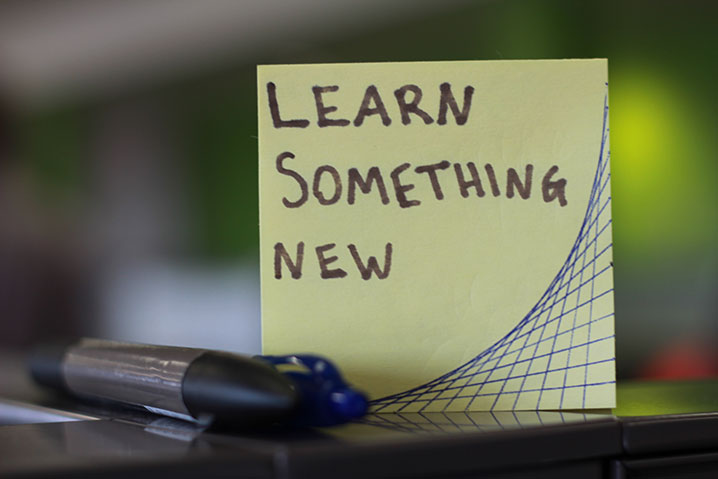When Forgetting is Good
The following post was written by guest blogger: Tracy Lowrance.
The link between learning and an organization’s ability to adapt in a competitive environment has been clearly documented. Though equally important, the strategic value of organizational forgetting is less prolific in industry research. Organizational forgetting is loss of information, whether intentional or unintentional, that results in a change in an organization’s capabilities.

Unlearning is the process of intentionally removing existing knowledge in order to replace it with new knowledge to create or maintain a competitive advantage.
In my article, The Implications of Organizational Forgetting in the Summer 2014 issue of Training Industry Magazine, I explored the four modes of forgetting, which are categorized by the source of the knowledge (new or existing) and the type of loss (intentional or accidental). In this two part blog series I will explore how companies can benefit from strategically forgetting and the pitfalls they may encounter. This first blog post will focus on unlearning; the intentional forgetting of existing knowledge.
A Case of Unlearning
In the mid 1800s, a mining engineer established a wood pulp mill near a chain of rapids in southern Finland. Over the years, the company evolved its product and service offering based on the needs of the local community, and eventually the global market. The company produced rubber goods including tires and galoshes, provided electricity and communications cables, and went on to build televisions, personal computers and other consumer electronics. How could an organization be innovative enough to successfully reinvent itself across such a broad range of industries? They had to strategically forget what they knew in order to make room for new information.
What is Unlearning?
Unlearning is the process of intentionally removing existing knowledge in order to replace it with new knowledge to create or maintain a competitive advantage. In an organization, existing knowledge is stored in the structures, routines and values of the organization. For an organization to stay relevant and continually reinvent itself it must master unlearning. Often it is those robust systems of embedded knowledge – daily processes and ingrained operational procedures – that inhibit an organization’s ability to innovate. The existing stocks of knowledge can actually act as barriers to new learning.
Unlearning and Your Organization
In an organization trying to maintain or create a competitive advantage access to new knowledge is critical for solving new problems and solving old problems in a new way. When history is the hero in an organization it can be difficult to move past “the way we’ve always done it” mentality.
One technique for assuring new knowledge is allowed to surface is to include new or different individuals in the problem solving/innovation process. Inviting new individuals to participate in the process can prevent incumbents from relying too heavily on their entrenched knowledge; instead of focusing on “how things are done around here”, they are encouraged to consider exciting alternative possibilities.
Conclusion
The company that started out as a wood pulp mill in the 1800s and evolved to become a global technology icon in the 1990s and early 2000s was Nokia. Since that time, however, Nokia has experienced a steady market decline – perhaps revealing a hampered ability to unlearn as they’d done successfully many times before. While at first blush, organizational forgetting may seem detrimental to an organization, it is often the process of forgetting that helps an organization maintain its competitive advantage.
In part two of this series, I will explore the intentional loss of new knowledge that can lead to a reduction in quality or productivity.
About the Author
 Tracy Lowrance has spent over 15 years working with organizations in higher education, financial services, healthcare, retail and government on change management and leadership development initiatives. Tracy is currently working on her dissertation on Organizational Forgetting in The George Washington University’s Executive Leadership Program. Her passion for learning, coupled with her scholarly and professional interests drive her to help organizations continually and effectively adapt and change in a complex world. Tracy is the Manager of OD and Professional Development at Clarkston Consulting, a management and technology consulting firm located in Raleigh, NC.
Tracy Lowrance has spent over 15 years working with organizations in higher education, financial services, healthcare, retail and government on change management and leadership development initiatives. Tracy is currently working on her dissertation on Organizational Forgetting in The George Washington University’s Executive Leadership Program. Her passion for learning, coupled with her scholarly and professional interests drive her to help organizations continually and effectively adapt and change in a complex world. Tracy is the Manager of OD and Professional Development at Clarkston Consulting, a management and technology consulting firm located in Raleigh, NC.

